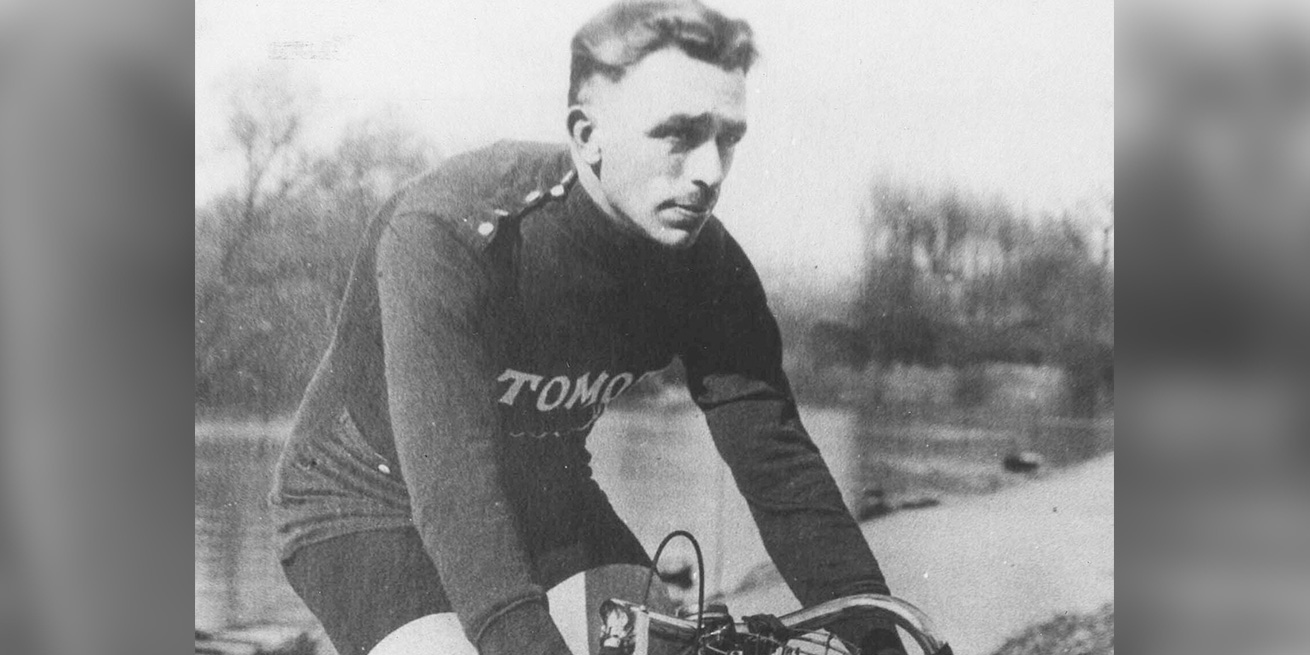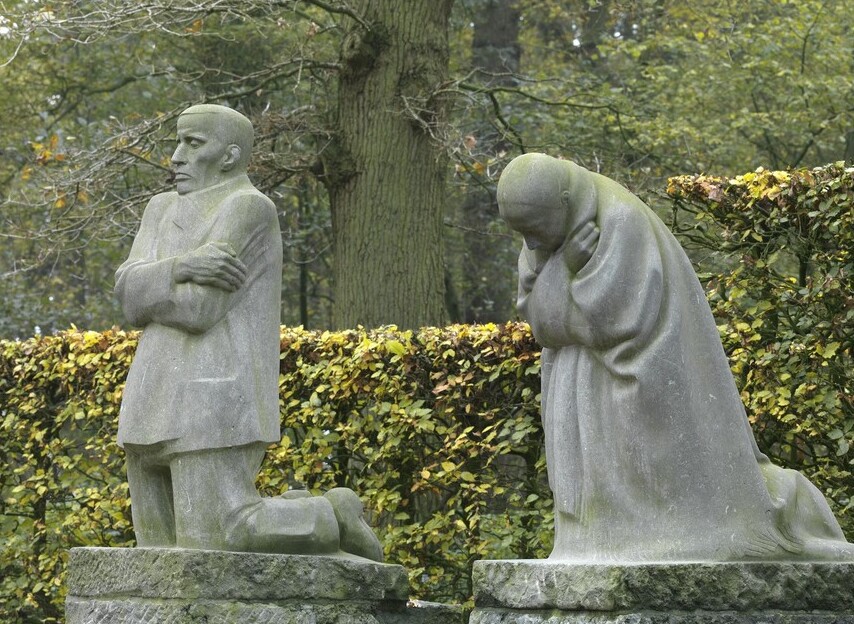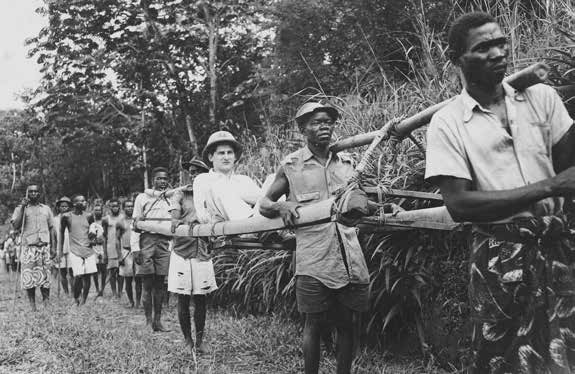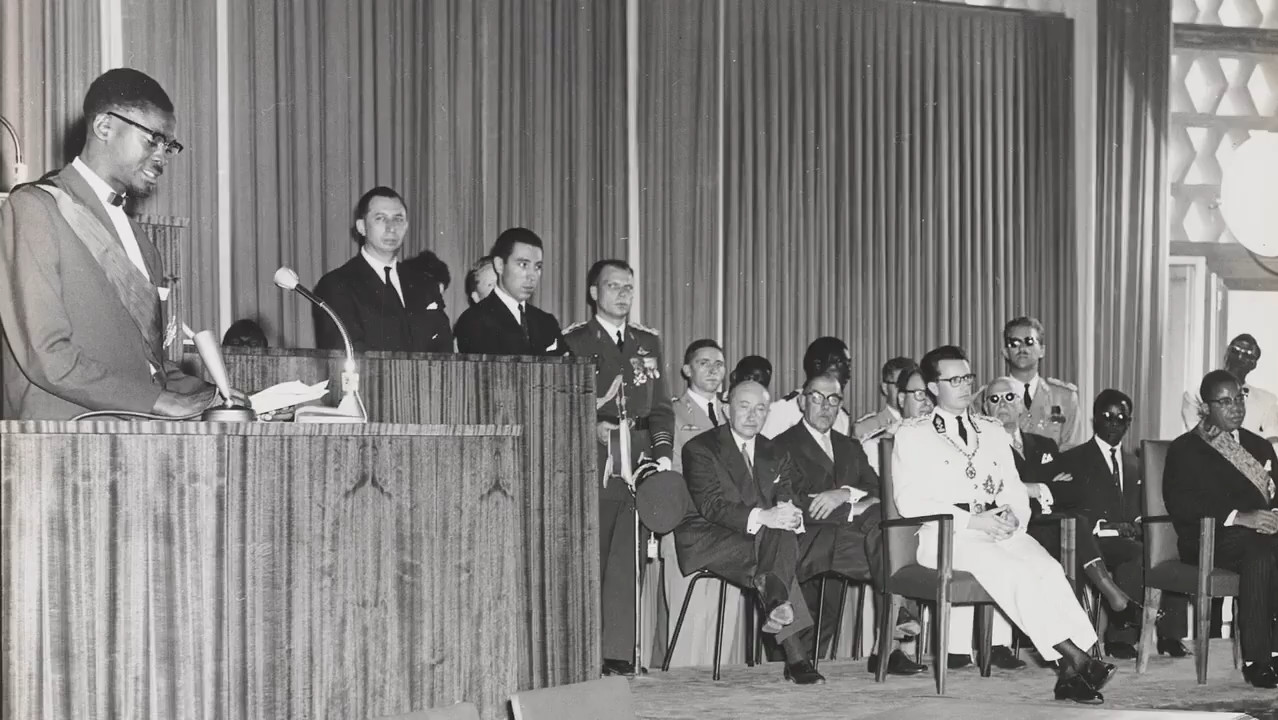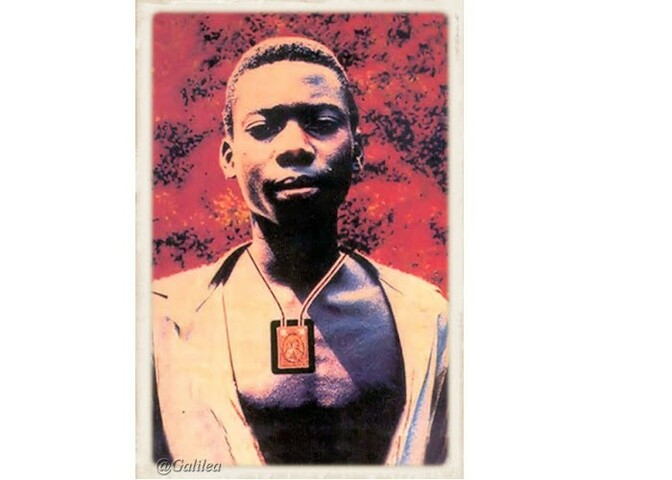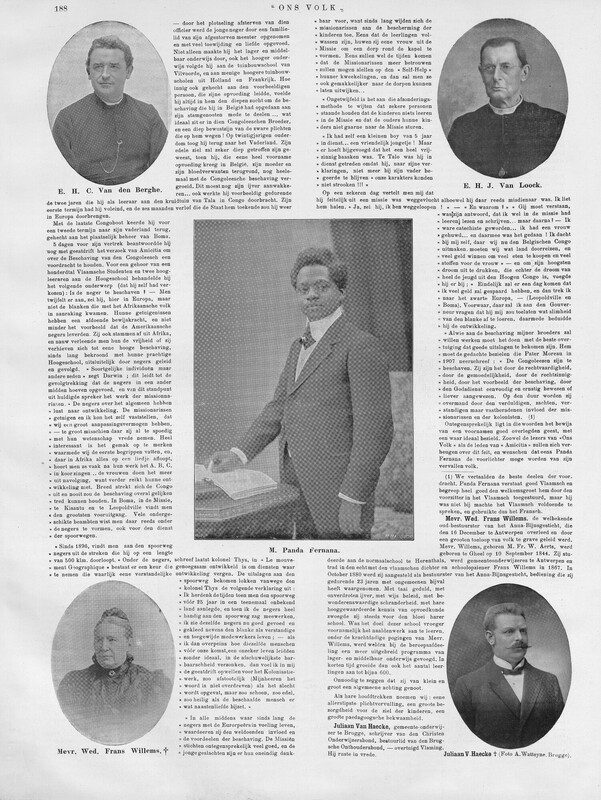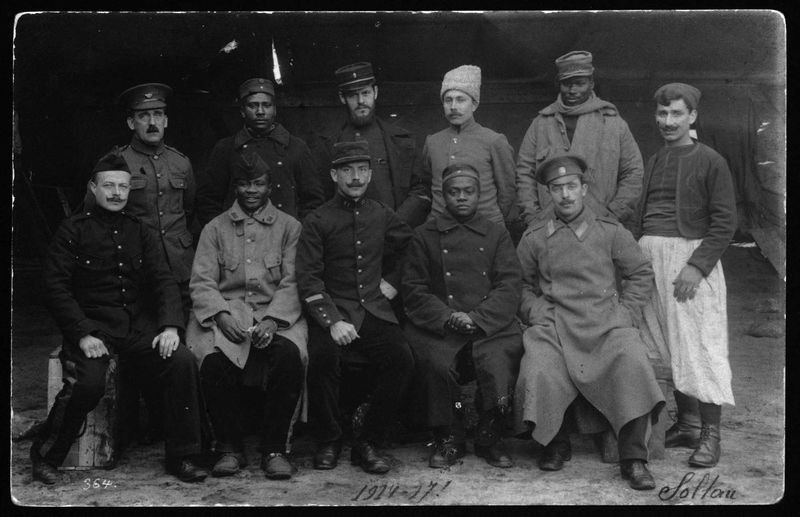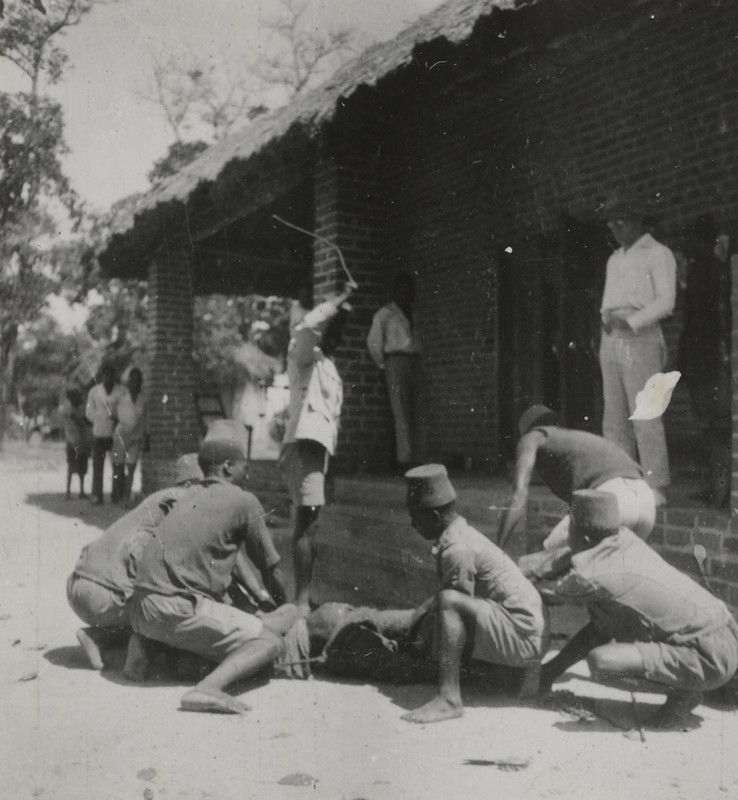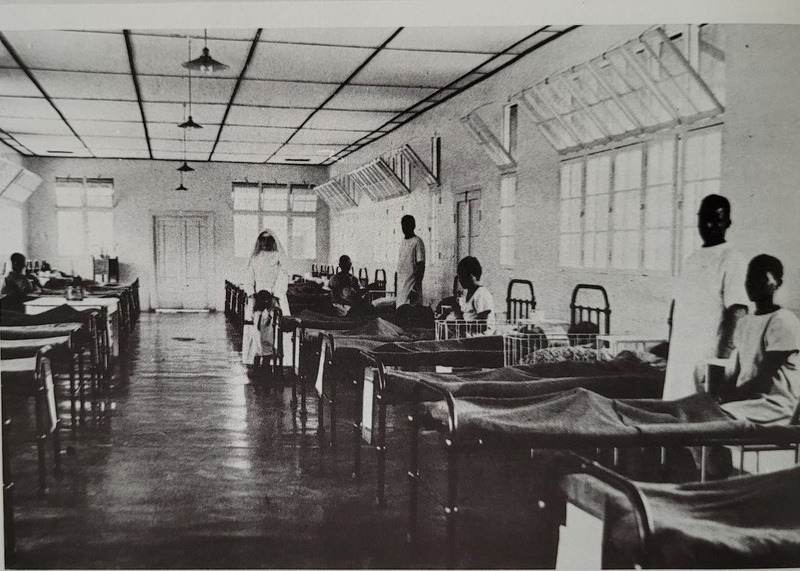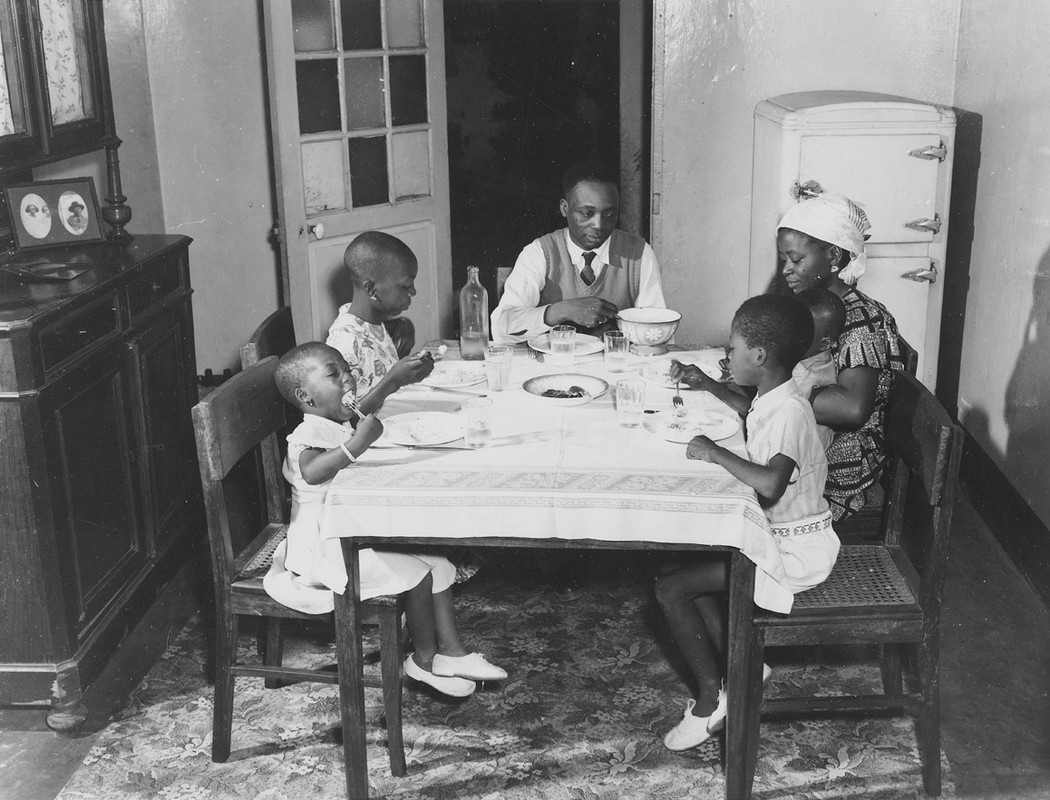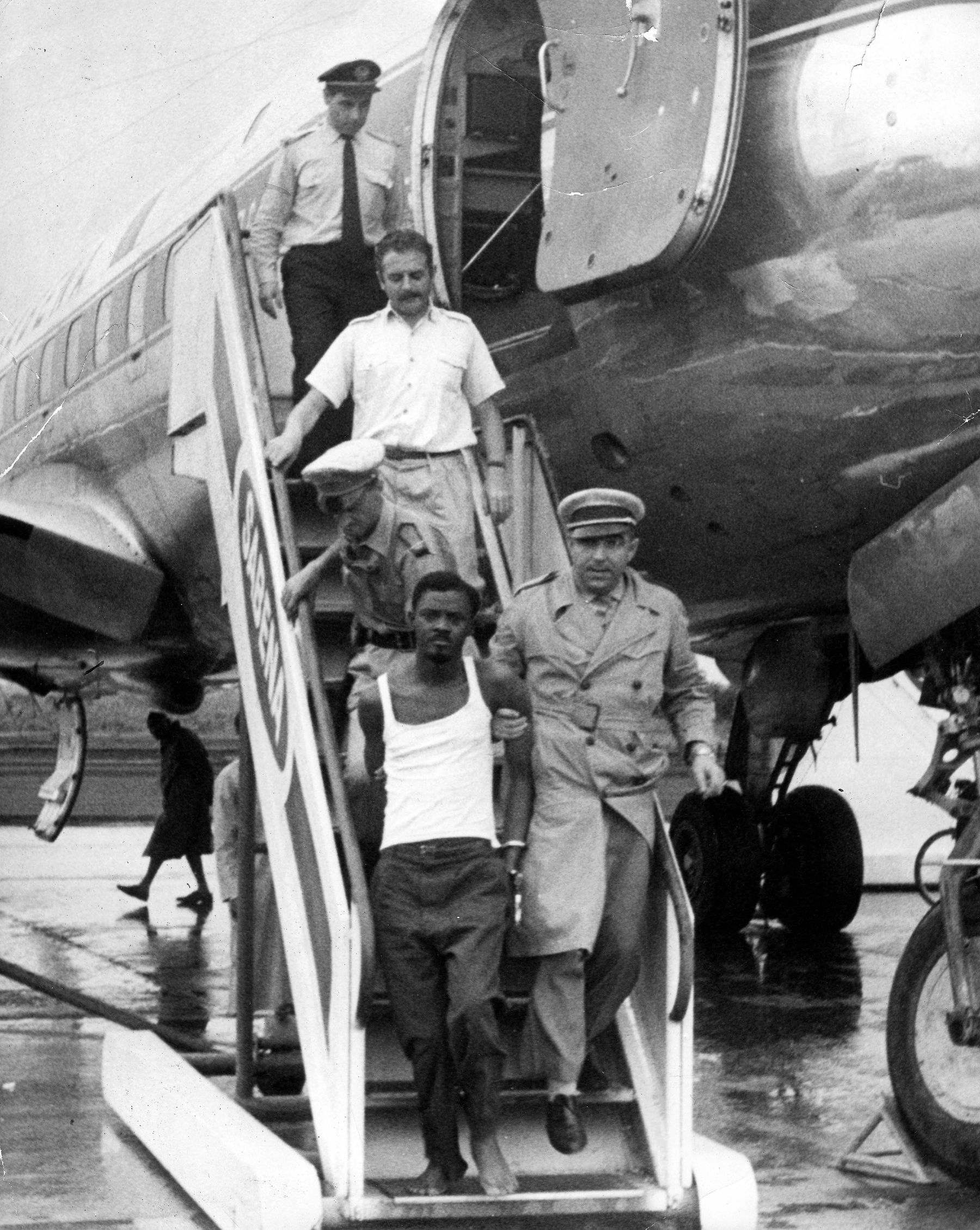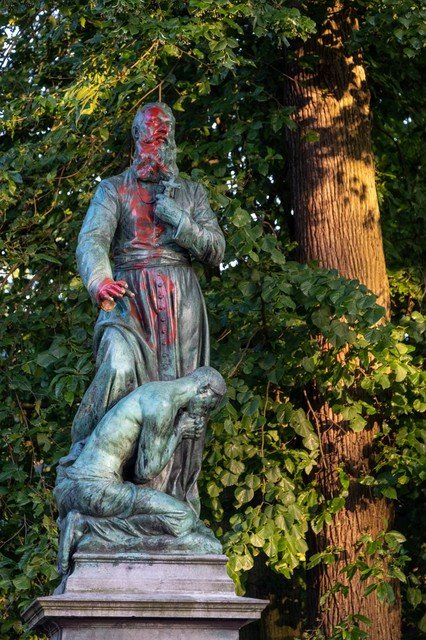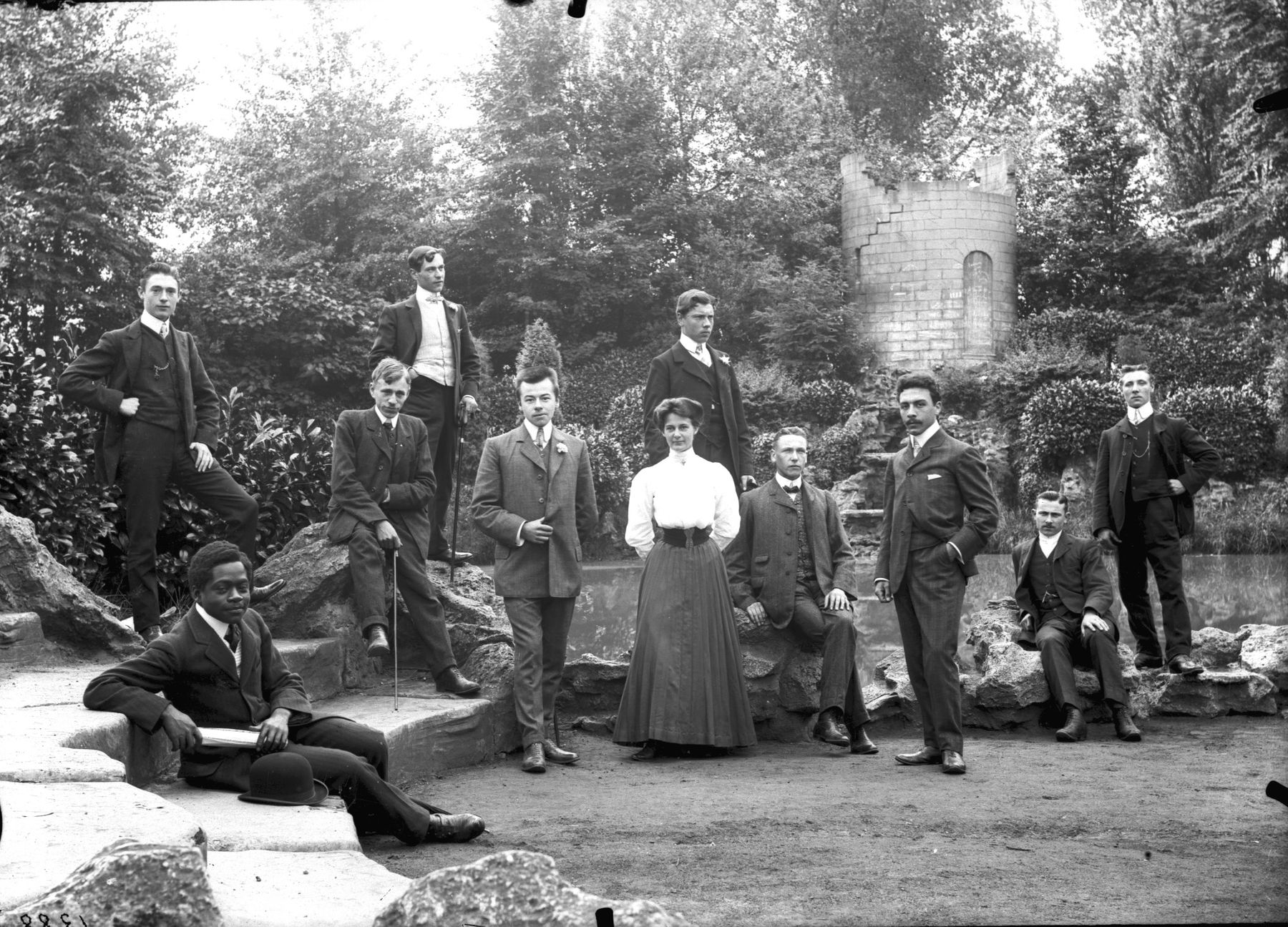
Paul Panda Farnana graduates in 1907 from the State Institute for Horticulture in Vilvoorde. He is seen here with his fellow students (nine men and one woman) in the town park in Vilvoorde | Vilvoorde, Horteco
Paul Panda Farnana
Congo, Conquered and Colonised
Paul Panda Farnana was the first Congolese intellectual to openly criticise colonialism. Taken into her home by a Belgian woman at an early age, he was able to study in Belgium. He fought against Germany in the First World War and was a prisoner of war. After the war he became a human rights activist.
Farnana was the son of a Congolese chief. He found his way to Belgium as the servant of a trader and grew up in the latter’s sister’s house. In 1909, after studying at the Atheneum in Elsene, the State Institute for Horticulture in Vilvoorde, and pursuing advanced studies in Paris and Mons, he returned to Congo. There he worked as an agricultural engineer for the colonial authorities and saw how racism, exploitation and violence characterised colonialism.
After the First World War Farnana founded the Union Congolaise (1919) He took part in the Colonial Congress in the Belgian Senate (1920) and in the second Pan-African Congress in Brussels (1921). He pleaded on behalf of the Congolese for equal rights, higher wages and better access to education. In vain. In 1929 he returned to his home village of Nzemba, where he died a year later.
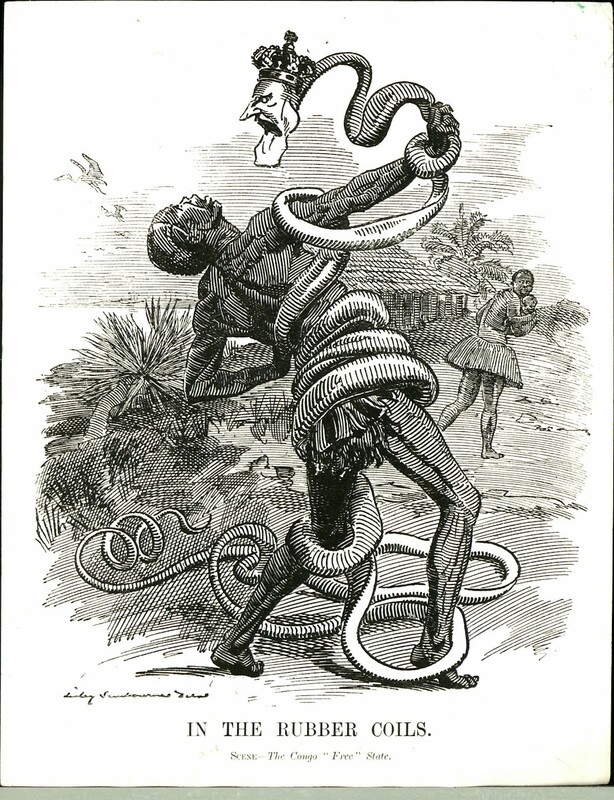
Wikimedia Commons
Leopold’s violent regime was sharply criticised in the British press. Cartoon by Edward Lumley Sambourne, published in 1906 in the satirical magazine Punch.
Congo, Conquered and Colonised
From the end of the 1870s on the Belgian King Leopold II, who had had colonial ambitions for quite some time, sent expeditions to Central Africa. Greedy for financial profit, he conquered an extensive area in the Congo basin. He created a private colony there with active support from the Belgian government, business world and church. In 1885 the great powers came to agreements on their sphere of influence in Africa and recognised Leopold II as sovereign of the Congo Free State.
For Leopold II and his co-workers Congo was an investment that had to pay off. The rising demand for rubber from the 1890s on made Congo a rich source of income. In order to maximise this the Congolese were forced to harvest rubber. That went hand in hand with large-scale atrocities, which were subject to much international criticism. The violent regime of Leopold II, together with an epidemic of sleeping sickness, led to a marked drop in population. In 1908 the Belgian state took over power and Congo became a Belgian colony.
In the Belgian Congo there were at most a few tens of thousands of Belgian officials, managing directors and missionaries active. In order to govern, exploit and convert the colony they appealed to large groups of Congolese subordinates: clerks, nursing assistants, catechists, soldiers… Congolese who like Paul Panda Farnana were given a senior post, were an exception.
After the Belgian takeover of 1908 colonisation continued to mean in the first instance for the Congolese occupation and subjection: forced taxes and forced labour in the copper mines, in road building or in the plantations. Repression made them toe the line. The profits went to a small group of Belgian entrepreneurs. Antwerp and Brussels were drivers of the colonial trade.
Focal points
Discover more on this topic
Non-fiction
Congo 1885-1960. Een financieel-economische geschiedenis
Epo, 2007.
De moord op Lumumba
Van Halewyck, 1999
De teloorgang van een modelkolonie. Belgisch Congo 1958-1960
Acco, 2008
Congo 1876-1914. Veroverd, bezet, gekoloniseerd
Sterck & De Vreese, 2020.
Death in the Congo. Murdering Patrice Lumumba
Harvard, 2015
Koloniaal Congo. Een geschiedenis in vragen
Polis, 2020.
De geest van koning Leopold II en de plundering van de Congo
Meulenhoff, 2020.
Een verzwegen leven: onze Congolese geschiedenis in België
Uitgeverij Vrijdag, 2023.
Knack Historia, Congo. Meer dan een kolonie
2018.
Dochter van de dekolonisatie
Epo, 2020.
Congo. Een geschiedenis
De Bezige Bij, 2021.
Congo. De impact van de kolonie op België
Lannoo, 2007.
Fiction
Paul Panda Farnana, een vergeten leven
Africalia, 2014. (stripalbum)
Congo 50
Africalia, 2010. (stripalbum)
Africa Dreams
Casterman, 2021. (reeks van stripalbums)
Hart der duisternis
L.J.Veen Klassiek, 2021.
Yaka mama
Davidsfonds, 2002. (12+)
Ik ben de jachtluipaard: een roman over Belgisch Congo
Clavis, 2021. (12+)
Kongokorset
Vrijdag, 2019.
De mensengenezer: roman
De Bezige Bij, 2018.
Kongo, de duistere reis van Józef Teodor Konrad Korzeniowski
Scratch, 2014.
Congo blues: roman
Cossee, 2017.
Tropenwee
Standaard Uitgeverij, 2023.
Vuurvader
Standaard Uitgeverij, 2022.
Zoon in Congo: zoektocht naar een vader
Lannoo, 2015.
Het land dat nooit was: een tegenfeitelijke geschiedenis van België
De Bezige Bij, 2015.
Oproer in Kongo
Manteau, 1990.
